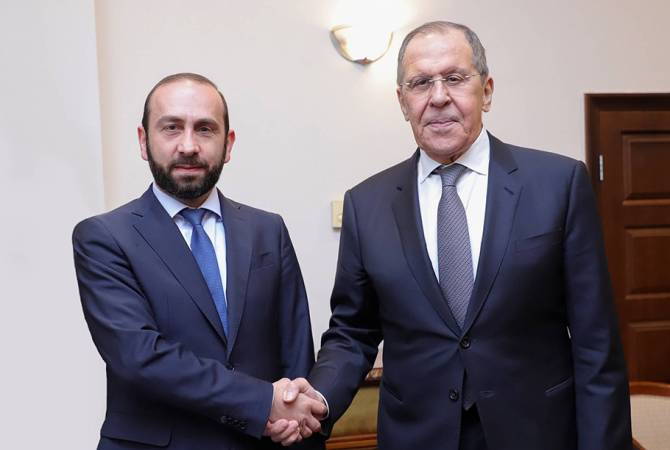
Recent notable episodes in Armenian-Russian relations ahead of Lavrov-Mirzoyan meeting
Russian Foreign Minister Sergey Lavrov is set to meet with his Armenian counterpart Ararat Mirzoyan. The diplomatic leaders of the two countries will discuss bilateral issues and cooperation within the Eurasian Economic Union (EAEU) and other associations.
TASS has highlighted recent events in Armenian-Russian relations. According to Russia’s Foreign Ministry, the parties will engage in a detailed exchange of views on the full spectrum of Russian-Armenian relations, cooperation within the EAEU, and other integration associations in the Eurasian region, as well as outstanding global issues.
Particular attention will be given to the situation in the South Caucasus, focusing on the normalization of relations between Armenia and Azerbaijan. Moscow anticipates that the upcoming meeting “will be constructive, facilitating the advancement of practical cooperation issues and strengthening security and stability in the South Caucasus.”
Armenia’s Aspirations Toward the EU
One of the most sensitive topics in the negotiations is likely to be the process of Armenia’s joining the European Union (EU), which officially began on Jan. 9 with the government’s approval of the relevant legislation.
In a press conference on the results of Russian diplomacy in 2024, Lavrov stated that Armenia’s membership in the EAEU is incompatible with its desire to join the EU. He characterized the relations between Moscow and Yerevan as complex, noting that the Armenian government should resolve its issues with neighboring countries rather than seek support from the EU, and the U.S. Russian Deputy Prime Minister Alexey Overchuk said that Moscow views Armenia’s decision to initiate the EU membership process as the beginning of its exit from the EAEU. However, he acknowledged that it is “the sovereign choice of the Republic of Armenia, which it undoubtedly has the right to make.” In response to the notion of leaving the EAEU, Armenian Economy Minister Gevorg Papoyan stated that Yerevan does not intend to withdraw from the Eurasian Economic Union. He noted that Yerevan should maintain, develop, and enhance its relationships with the EAEU while also establishing relations with other organizations. The draft law on EU membership is expected to be discussed in the country’s parliament by the end of this month. Prime Minister Nikol Pashinyan noted that this “does not literally mean the country’s membership in the EU, as a decision on this matter can only be made through a referendum.”
Armenia’s Participation in the CSTO
Another urgent issue on the bilateral agenda could be Armenia’s withdrawal from all formats of the Collective Security Treaty Organization (CSTO). Earlier, Pashinyan stated that Yerevan has suspended its participation in the CSTO, claiming that the organization poses a threat to the republic’s sovereignty. Despite this, the organization’s Secretary General Imangali Tasmagambetov indicated that the CSTO still considers Armenia an equal partner and is ready for dialogue on all issues. In November, Lavrov met with ambassadors and permanent representatives of CSTO member countries, including the head of Armenia’s diplomatic mission in Russia, Gurgen Arsenyan. However, as noted by Armenian Foreign Ministry Spokesperson Ani Badalyan, this does not change Yerevan’s stance toward the organization.
Putin and Pashinyan’s Conversation
Russian President Vladimir Putin discussed bilateral issues and the EAEU agenda with Pashinyan in a phone conversation on Jan. 17. They also addressed the further deepening of cooperation between the two countries, particularly in the energy sector. The Kremlin said that during the conversation initiated by Yerevan, the Armenian prime minister clarified the situation regarding Armenia’s aspirations for EU membership. The parties noted “the significant practical benefits of joint work within the framework of the EAEU, including for Armenia’s economy.”


